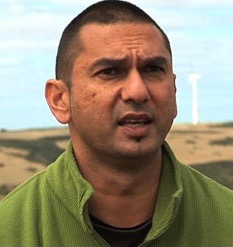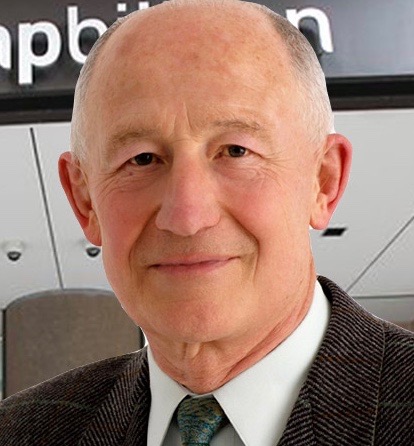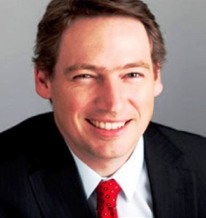Date:
Tuesday, May 17, 2016 - 17:30
Event:
Presenter:
Dr Karl Braganza (Bureau of Meteorology), Mr Ian Dunlop, Mr Michael Nolan (AECOM)
Venue:
Innovation Hub (lower level) Engineers Australia, L 31, 600 Bourke Street Melbourne
Event Details:
Who should attend?
Engineers who are concerned about Climate Change in Australia and the urgent action on transition to low emissions energy economy and adaptation impacts on Industry, Business and community.
Theme
We are now at the stage where Economic and environmental sustainability are inextricably linked to the health, safety and wellbeing of the community and the long-term survival of life on earth. Resource and energy consumption are unsustainable, with release of waste and substances to the environment exceeding the limits of regeneration and threatening ecosystems.
World leaders at COP21 accepted that global warming requires urgent action to limit to two degrees, however leadership in Business and Government in Australia is ineffectual or confined to a few organisations and individuals who don’t challenge the perception that economic growth is incompatible with rapid transition to low emissions. Engineers Australia policies acknowledge that sustainable outcomes require transformative change in business practices, lifestyles, and in the way resource allocation decisions are made, however implementation across the membership has not occurred.
Real life examples of essential adaptation will be presented, showing the benefits to Industry, Business, and our cities of the transition to a safe climate.
- attend in person in Melbourne, or
- log on to view the live webinar from your PC or device ANYWHERE!
 Dr Karl Braganza - Bureau of Meteorology
Dr Karl Braganza - Bureau of MeteorologyDroughts and flooding rains; Australia's climate variability
Karl will present Climate monitoring and climate variability and predicting future climate changes impacting our landscape, ecosystems, water, agriculture, oceans and infrastructure, with particular emphasis is on events with the greatest societal impacts such as extremes of heat, floods, droughts and severe fire seasons.
Karl Braganza has a PhD in Mathematics from Monash University, and is currently the Manager of Climate Monitoring at the Australian Bureau of Meteorology. His research work has centred on understanding and attributing climate variability and change, using instrumental observations, palaeo-climate reconstructions and dynamical modelling. In his role at the Bureau of Meteorology, he has contributed as a lead author on the Bureau’s State of the Climate publications and Climate Change in Australia Technical Reports.
 Ian Dunlop – Acting Chair of Safe Climate Australia
Ian Dunlop – Acting Chair of Safe Climate AustraliaOur climate and energy dilemma - The case for emergency action
Ian has wide experience in energy resources, infrastructure, and international business, for many years on the international staff of Royal Dutch Shell. He has worked at senior level in oil, gas and coal exploration and production, in scenario and long-term energy planning, competition reform and privatization. He chaired the Australian Coal Associations in 1987-88. From 1998-2000 he chaired the Australian Greenhouse Office Experts Group on Emissions Trading which developed the first emissions trading system design for Australia. From 1997 to 2001 he was CEO of the Australian Institute of Company Directors. Ian has a particular interest in the interaction of corporate governance, corporate responsibility and sustainability. He advises and writes extensively on governance, climate change, energy and sustainability in Australia and overseas.
Ian’s theme is that to avoid catastrophic outcomes we must take emergency action now to halt new fossil-fuel investment, and rapidly wean ourselves off established fossil-fuel use. We have solutions, but thus far have lacked the will to implement them. Leadership is unlikely to come from the political and corporate incumbency without great pressure being brought to bear by the community, in particular from informed professional bodies such as engineers and investors.
 Michael Nolan - UN Global Cities Institute
Michael Nolan - UN Global Cities InstituteClimate change impacts -Risk assessment and adaptation for resilience in water, energy, coasts, cities and regions.
Michael is Chair of the UN Global Cities Institute at RMIT. The Cities program is a holistic approach to sustainability that considers, plans for and measures impact across four social domains: the economic; ecological; political; and cultural.
Michael has leading expertise in sustainability, climate adaptation and resilience with over 20 years experience working with governments, UN groups, communities and the private sector. He had a global role (of 11 years) focused on resilient cities working for AECOM
He has extensive experience in sustainable infrastructure, climate change adaptation and resilience in Australia, United States, Canada, China, India, Brazil, New Zealand, and United Kingdom.
Michael has led over 120 climate change impact, risk assessment, adaptation and resilience projects relating to ports, road, rail, local government, water, flood management, power, mining, buildings, facilities, coasts, states and cities. Michael represented the Infrastructure Sustainability Council of Australia in developing the Australian Standard AS5334 Climate Change Adaptation for Settlements and Infrastructure.



